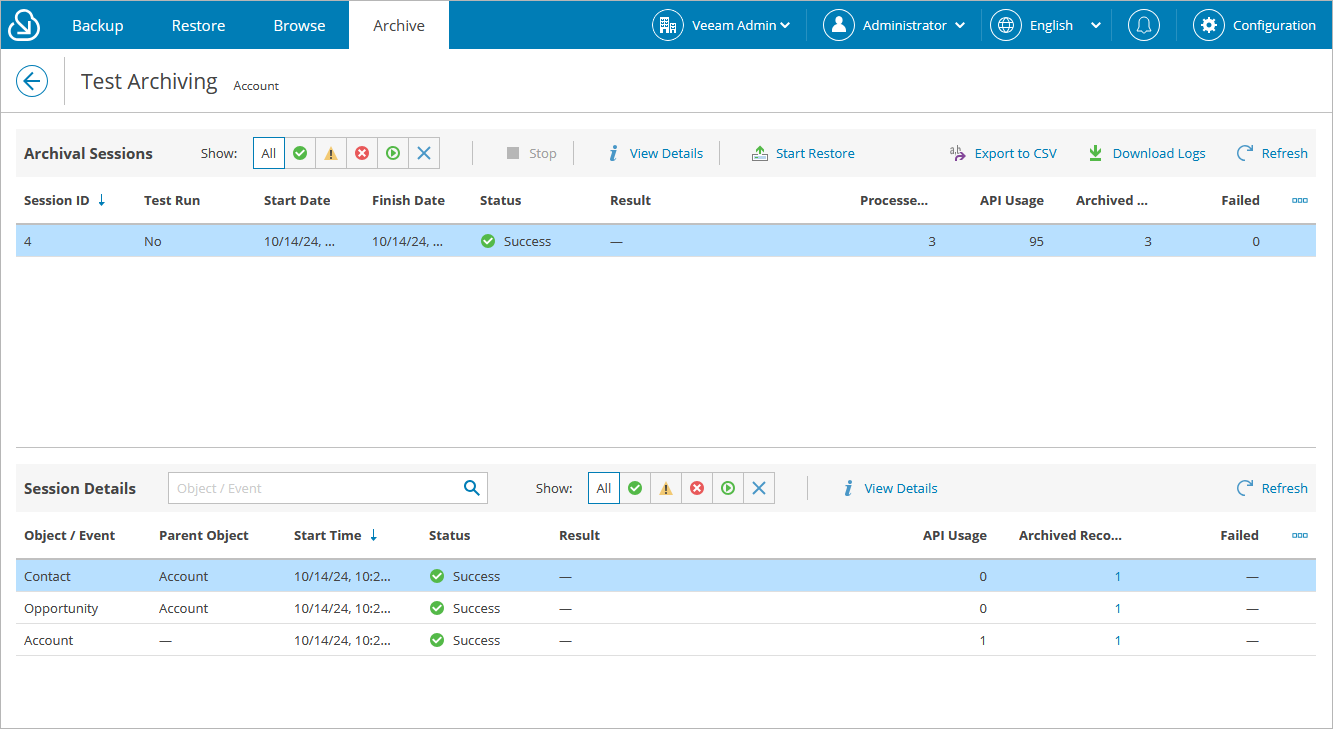Viewing Archival Policy Sessions
For each performed archival operation, Veeam Backup for Salesforce starts a new session according to the created archival polices, and stores the session details in the product database. You can track real-time statistics of all running and completed operations on the Archive tab. To view the full list of tasks executed during an operation, click the link in the Status column.
The Archival Sessions section of the Archive tab displays information on all sessions of the archival policy. Each session is described with the following set of properties:
- Session ID — the ID assigned to the session.
- Test Run — the indication whether the policy was launched in the test mode.
- Start Date — the date and time when the session started.
- Finish Date — the date and time when the session ended.
- Status — the current status of the session.
- Result — the explanation why Veeam Backup for Salesforce failed to process the records (applies only to sessions with the Warning and Error statuses).
- Processed Objects — the total number of objects processed during the session.
- API Usage — the total number of API calls sent during the session.
- Archived Records — the total number of Salesforce records archived during the session.
- Failed — the total number of Salesforce records that Veeam Backup for Salesforce failed to process.
Note |
You can restore records archived during a specific archival session. To do that, choose the necessary session in the Archival Sessions section, click Start Restore and complete the Restore Records wizard as described in section Restoring Records. |
The Session Details section of the Archive tab displays information on all objects included in a specific policy session. Each object is described with the following set of properties:
- Object / Event — the name of the archived object.
- Parent Object — the name of a parent object to which the archived object is linked (if any).
Veeam Backup for Salesforce will display only those parent objects that are linked to the archived object using master-detail relationships.
- Start Time — the date and time when Veeam Backup for Salesforce started a new task to process the object.
- Status — the current status of the task.
- Result — the explanation why Veeam Backup for Salesforce failed to process the records (applies only to tasks with the Warning and Error statuses).
- API Usage — the total number of API calls sent during the task.
- Archived Records — the total number of Salesforce records archived during the task.
- Failed — the total number of Salesforce records that Veeam Backup for Salesforce failed to process.
TipS |
|
